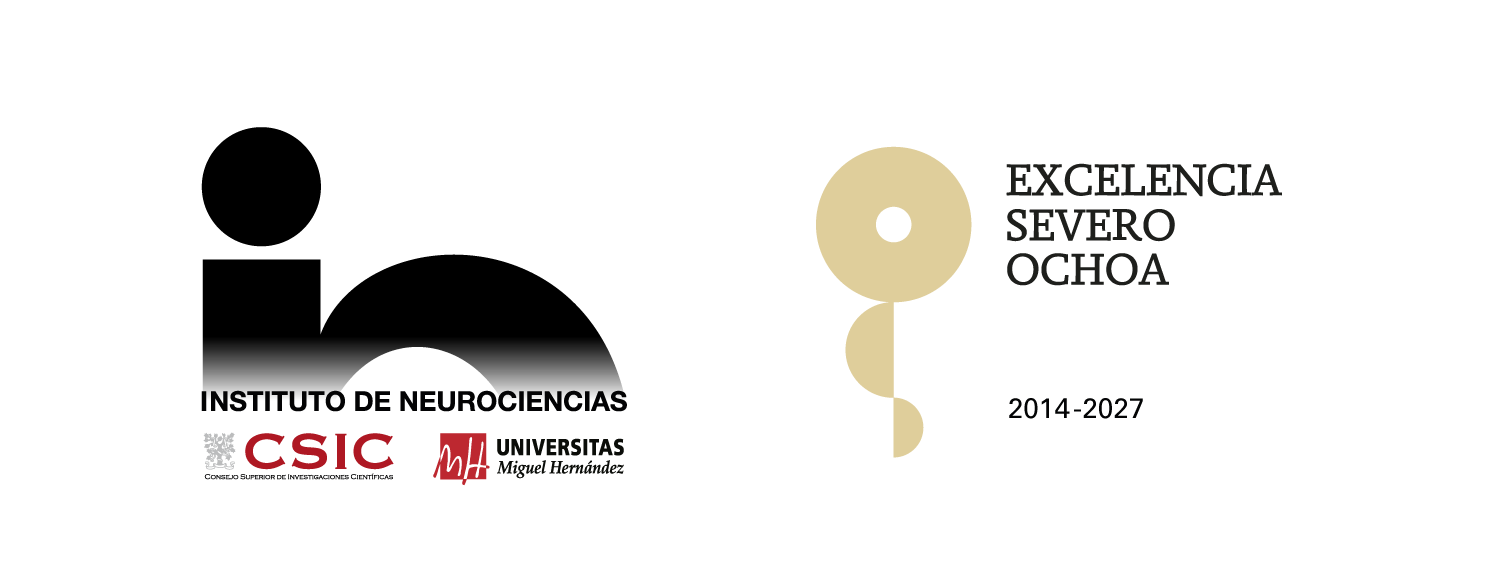A project from the Institute for Neurosciences CSIC-UMH will study the role of microglia in Alzheimer’s disease
7 de October de 2024
Researcher Silvia De Santis has been awarded a research project from the Pasqual Maragall Researchers Programme 2023
(View press release at attached file)
In recent years, it has been discovered that the inflammatory system plays a crucial role in the very early stages of Alzheimer's disease. However, studying microglia non-invasively and in vivo is a challenging process. The Translational Imaging Biomarkers laboratory, led by Silvia De Santis at the Institute for Neurosciences (IN), a joint center of the Spanish National Research Council (CSIC) and the Miguel Hernández University (UMH) of Elche, has developed a technique that allows monitoring microglia to conduct this study. This research proposal was one of two awarded by the Pasqual Maragall Foundation, selected from 40 applications.
Microglial cells are immune cells located in the brain and spinal cord, whose main function is to act as the first line of defense for the brain's immune system. "Currently, microglia have become key players in Alzheimer's research because these cells act to contain the damage caused by the pathology, but their prolonged activation can worsen cognitive degeneration. This duality makes our proposed study essential for better understanding the progression of the disease," explains De Santis.

Photo: Silvia De Santis, CIDEGENT researcher at the Institute for Neurosciences CSIC-UMH.
The laboratory led by the researcher at the IN has developed a new non-invasive brain imaging technique based on water diffusion-weighted magnetic resonance imaging (MRI), which allows the monitoring of microglia. The project aims to apply this technology in an animal model of Alzheimer's disease and later adapt it to human patients. In collaboration with the Alfa Study at the Barcelonaβeta Brain Research Center, which has been following a patient cohort for over 10 years, the researchers will seek to integrate this new protocol into future brain scans.
Additionally, artificial intelligence will be used to improve the interpretation of previous images, enhancing their resolution and allowing for the analysis of microglial activation in already acquired images. "Microglia-mediated brain inflammation is one of the key factors in the early stages of Alzheimer's. This work will allow us to better understand its role in disease progression and could open the door to new therapies," notes De Santis.
The Alfa Study also provides data on individuals who are at risk of developing Alzheimer's disease. In fact, some of the participants have developed early symptoms of the disease during the follow-up period, allowing researchers to analyze their brain images in the very early stages of the disease. “Characterizing microglia could offer an opportunity to advance diagnosis by detecting alterations in the preclinical stages, before cognitive decline begins. In this way, new risk factors could be identified, enabling more personalized monitoring and improving disease prognosis,” De Santis points out.
It is estimated that neurodegenerative diseases like Alzheimer's currently affect 900,000 people. These conditions are one of the main causes of mortality, disability, and dependency. With the increase in life expectancy, the population is aging, and by the year 2050, the number of cases could triple globally, exceeding one and a half million people in Spain alone. This could potentially overwhelm healthcare and social care systems if effective treatments are not found.
About Pasqual Maragall Foundation
Pasqual Maragall Foundation is a private non-profit entity that was born in April 2008, in response to the commitment made by Pasqual Maragall, former mayor of Barcelona and former president of the Government of Catalonia, when he announced that he had been diagnosed with Alzheimer's.
Around 200 professionals work at the foundation, which pursues a double mission: promoting research to prevent Alzheimer's and offering solutions that improve the quality of life of affected people, their families, and their caregivers. Its work is possible thanks to the support of fifteen entities and a social base of more than 80,000 members, who contribute financially to the continuity of the project.
The goal of the Pasqual Maragall Researchers Programme grants is to promote the search for solutions against dementias. In this edition, 1.6 million euros have been allocated to fund the two awarded projects. “The projects awarded in this second edition are outstanding examples of innovation and scientific excellence, and we are convinced they will significantly contribute to accelerating the development of solutions against dementias. At the Foundation, we strongly believe that research is the only path to understanding, treating, and eradicating Alzheimer’s and other neurodegenerative diseases. For this reason, we support these research grants, which not only recognize the talent and dedication of the researchers but also reaffirm our unwavering commitment to the health and well-being of our society. These initiatives are essential to advancing toward a future where dementias are a thing of the past”, says Arcadi Navarro, director of the Pasqual Maragall Foundation.
You can collaborate with the Pasqual Maragall Foundation at the following link: https://fpmaragall.org/donativos/
Source: Institute for Neuroscience CSIC-UMH (in.comunicacion@umh.es) & Pasqual Maragall Foundation (comunicacio@fpmaragall.org)

 Español
Español